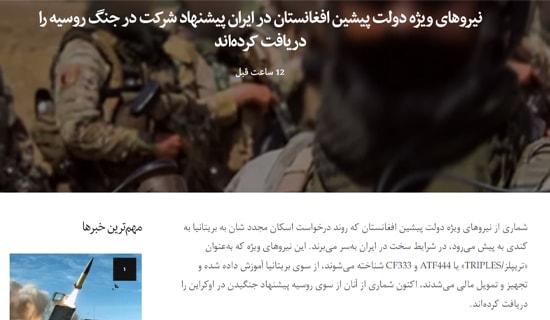The Egyptian government recently decided to replace some of the country's 27 regional governors. On August 7, 2011, General Tantawi, head of the Supreme Council of the Armed Forces (SCAF), swore in 15 new governors, 11 of whom were new to the post and four of whom were shifted from one governorate to another, as well as three new deputy governors.[1] The 12 other governors remained in their posts.
The reshuffle caused an uproar among the Egyptian public and press. Critics complained that the new governors were appointed rather than elected, that they included no women, Copts, or young people, and that many of them were military figures and/or members of the old regime.
Responding on behalf of the government, the regional development minister urged critics to give the new governors a chance, adding that elections will be held for these posts after the amendment of the Regional Administration Law.[2]
Criticism by Public Figures, Organizations, and Parties
Among the new governors whose appointments were criticized because they were military figures and members of the previous regime was Sarag Al-Din Al-Roubi, governor of Al-Mina, who had served for many years as head of Interpol in Egypt and came under suspicion of bribery.[3] Also criticized were the appointments of the governors of Alexandria, Aswan, and Al-Daqahliya governorates, who were members of the former ruling party. Residents of the city of Qana criticized the reinstatement of 'Adel Labib, a former officer in the security services and an associate of Mubarak.[4]
Former International Atomic Energy Agency secretary-general Mohamed ElBaradei, who is a candidate for the Egyptian presidency, pointed out that 18 of Egypt's 27 regional governors are military figures. The Free Front for Peaceful Change organization likewise called for appointing civilians and young people rather than military figures.[5] Various parties and social organizations said that the reshuffle, which has left in place many governors considered to be enemies of the revolution and who are opposed by the public, reflects the spirit of the old regime.[6]
Criticism was also voiced over the religious homogeneity of the newly appointed governors. ElBaradei himself criticized the fact that all the governors are Muslims, as did representatives of the Coptic Church, who called this a "step backwards" that bodes ill for political life in Egypt.[7] Church representatives and human rights organizations spoke out against the reinstatement of Labib as governor of Qana, calling it government capitulation to extremist groups that would not stand for a Copt in this post. Human rights organizations, including the Egyptian Human Rights Center, headed by Safwat Gargas, protested against the absence of women, Copts, and young people among the new appointees, as well as the fact that some governors remained in their posts even though they had previously failed in their duties.
Former Arab League secretary-general 'Amr Moussa, another presidential candidate, criticized the way in which the governors were selected, and called for considering an option of holding elections for these posts. He also called for appointing governors based on professional rather than political criteria, such as their ability to develop the provinces.
Criticism in the Press
The following are excerpts from three Egyptian press articles criticizing the governors' appointment.
Giving Preference to Military Figures Smacks of the Old Regime
Dr. Nader Al-Fargani, columnist for the Egyptian daily Al-Dustour, claimed that the military should indeed participate in the leadership of the country, but that military personnel should not be given preference in attaining leadership positions, as this harmed the civilian nature of Egypt: "One of the flaws in the reshuffle of governors is that most of them are from past generations or are military figures.
"There is nothing wrong with military figures taking an equal part in all positions of social leadership, as long as they possess the [required] abilities and qualifications, of course. Members of the military are part of the homeland and the nation, and it is therefore only fitting that they should merit esteem [and appointments] according to their proportional weight in the Egyptian [population]. But giving them sweeping priority in [gaining] positions of social leadership, as the previous regime did [when it appointed] regional governors, indicates that the dominant mentality is [still] one of 'state security,' which was the mentality of the previous regime...
"This [move] abandons the principles of justice and equal opportunity in a way that threatens the aims of the revolution, [such as] freedom, justice, and human dignity, and consolidates a military aristocracy that is at odds with the civil character of the state that the SCAF is determined to defend..."[8]
The New Governors Should Have Been Elected, Not Appointed
Sa'id Shu'aib, columnist for the daily Al-Yawm Al-Sabi', wrote that the governors should have been elected, rather than appointed: "There is no way to know what criteria guided the appointment of the new governors. There is also no way to know what their plans are and when they will be implemented, and what criteria will be employed in holding [these governors] accountable.
"The exact same method was employed in appointing the [country's] ministers and the government newspaper's editors and board directors, as well as those appointed to [senior positions in] the broadcasting authority and the information ministry.
"Is this due to incompetence on the part of the government and the SCAF? Of course not. It is [rather] because they are employing the methods of Mubarak and his predecessors. [When applied to] the regional councils, this is an especially grave [fault], because [these councils] are the solid foundation for building real democracy and a strong and active state that heeds the public's needs. This will not happen, no matter who the governor is, because he was not appointed through elections. In this situation, his loyalty will naturally be towards those who appointed him. I do not mean to disparage his personality, but if certain people appointed him, it is only natural that he should be loyal to these [same people]...
"If the government and the SCAF want [to enact] true reform, they must change the laws and allow people to realize their right to vote and to demand an account from those who rob them."[9]
Stop Appointing Members of the Old Regime; Give Young People a Chance
A columnist for the Al-Wafd daily, Wagdi Zain Al-Din, said that young people should be given a chance to serve as governors, instead of officials of the old regime being left in place: "The first principle of a revolution is to elect new leaderships with a different outlook and views [to replace] those which preceded January 25. By selecting governors from the previous era, whose loyalty lies with the previous era and whose outlook has not changed, the prime minister has left [the people] sad and without hope.
"Why has Sharaf chosen to do this? Why does he insist on raising doubts about himself? This is not the first time he has made controversial choices... We can add that these appointments give another chance to [figures] who have already held posts, and who failed utterly. We are surprised to see them appointed governors as a reward for the disasters [they caused]...
"Why is this government treating the young people like immature [children]? Why is Sharaf emulating the conduct of the previous governments of the deposed [ruling party]? What is keeping him from carrying out a radical reshuffle of governors? What is keeping him from appointing a young man under 30 to govern one of Egypt's provinces?...
"Egypt is in the midst of a revolution, and the Egyptians have the right to see an immediate change in the [figures] managing the affairs of their governorates. It is a shame to see old faces as part of this reshuffle – as though there were not enough people in the country [to choose from]."[10]
Endnotes:
[1] Al-Ahram (Egypt), August 8, 2011.
[2] Al-Ahram (Egypt), August 8, 2011; Al-Sharq Al-Awsat (London), August 7, 2011.
[3] Al-Ahram (Egypt), August 7, 2011.
[4] Al-Ahram (Egypt), August 5, 2011. Labib was reinstated as governor after he was replaced a few months ago by a Copt, 'Imad Shehata Mikhail. The appointment of the latter sparked demonstrations by residents who demanded a Muslim governor and accused Mikhail of involvement in the killing of demonstrators during the revolution, in his capacity as a senior security officer in Al-Giza. Al-Masri Al-Yawm (Egypt), April 18, 2011.
[5] Al-Ahram (Egypt), August 5, 2011.
[6] Al-Masri Al-Yawm (Egypt), August 7, 2011.
[7] Roz Al-Yousef (Egypt), August 8, 2011.
[8] Al-Dustour (Egypt), August 8, 2011.
[9] Al-Yawm Al-Sabi' (Egypt), August 6, 2011.
[10] Al-Wafd (Egypt), August 6, 2011.





